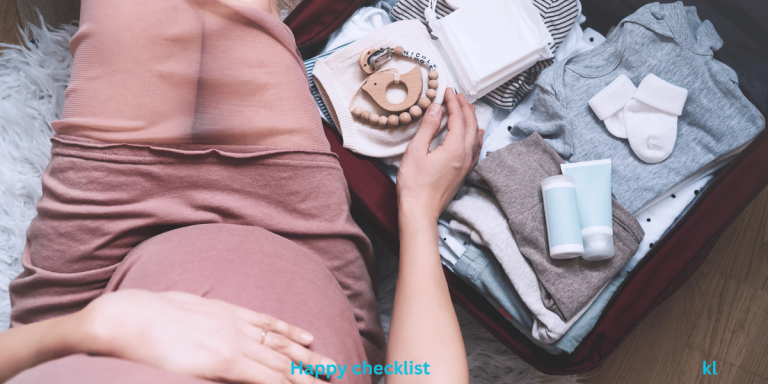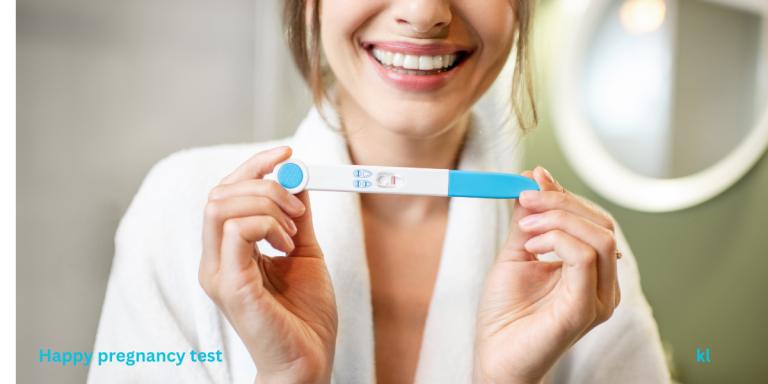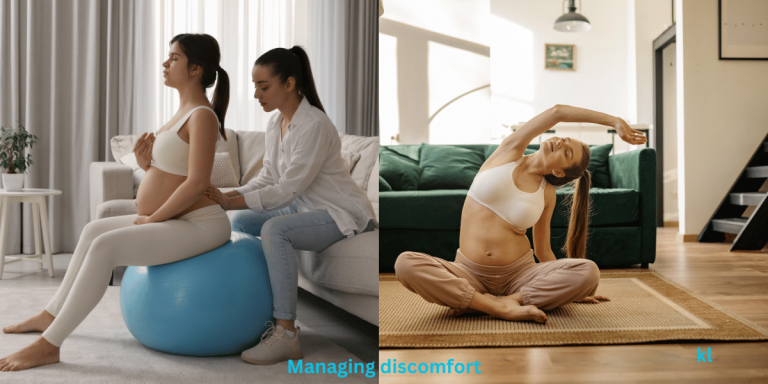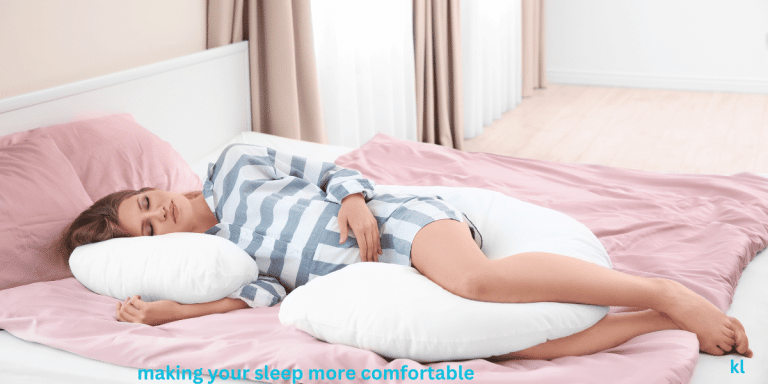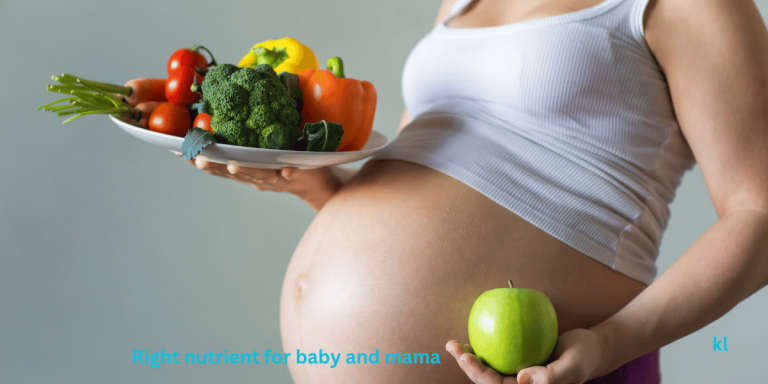Postpartum recovery is a whirlwind of emotions, healing, and learning to care for your newborn. According to the NIH, it lasts between 6 to 8 weeks and ends when the mother’s body has nearly returned to its pre-pregnant state.
However,80% of new mothers feel unprepared for the physical and emotional challenges of the postpartum period.
Recovering from a vaginal delivery or C-section is no easy task, which is why preparing in advance with the right postpartum essentials is so important.
Whether you’ve had a vaginal birth or a C-section, having these items ready can make the recovery process much smoother.
That’s why we’ve created the 31 Postpartum Must-Haves: Ultimate Guide for All Deliveries, packed with real-world advice from moms who’ve been exactly where you are right now.
This isn’t just another generic list – it’s a lifeline of tried-and-true essentials that will support you through recovery, healing, and those magical first moments with your new baby.
- Healing and Recovery Essentials: What You Need Post-Delivery
- Breastfeeding and Feeding Must-Haves: Essentials for a Smooth Journey
- Comfort and Self-Care Items: Prioritizing You During the Fourth Trimester
- Practical Home Recovery Helpers: Easing the Postpartum Transition at Home
- Physical Recovery and Body Care: Essential Tools for Postpartum Healing
- Emotional and Mental Health Support: Essential Tools for Postpartum Wellness
Healing and Recovery Essentials: What You Need Post-Delivery
From personal experience, having the right postpartum healing products and recovery must-haves can make a world of difference. Let’s dive into what you’ll want on hand to feel as comfortable as possible during this time.
- Comfortable, Supportive Recovery Clothing
Investing in the right recovery garments, a must-have essential, is truly a game-changer. For me, high-waisted postpartum leggings and loose, breathable tops were complete lifesavers.
They offered support without putting pressure on sensitive areas, especially after a C-section. If you’ve had a vaginal delivery, soft cotton underwear can be more comfortable, especially if you’re dealing with stitches or perineal swelling.
Don’t forget nursing-friendly options if you plan to breastfeed. Comfortable nursing gowns and tops are great for easy access and won’t irritate your skin. The goal is to prioritize recovery clothing that helps you feel cozy while supporting your body’s healing process.

- Pain Management and Comfort Solutions
Pain is a part of the healing process, but there are tools to help you manage it. For vaginal delivery, a sitz bath can do wonders for perineal discomfort.
Combine it with soothing postpartum healing products like witch hazel pads or perineal sprays for added relief. Do not forget to add the perineal spray to your hospital bag!
After my first delivery, I relied heavily on a perineal cooling spray—it was my secret weapon! For C-section recovery, abdominal binders provide extra support to your incision area and can make moving around less daunting.
It’s a small thing, but it really helps with delivery recovery, especially in those first few weeks when every step feels like a challenge.

- Wound Care and Personal Hygiene Items
Keeping things clean is essential for both vaginal and C-section deliveries. Postpartum healing involves a lot of personal hygiene, so stock up on items like peri bottles, which make cleaning easier and gentler.
For C-section mamas, be sure to use a gentle, doctor-recommended wound care cream or healing product to prevent irritation and promote faster healing.
Disposable mesh underwear might not be the prettiest thing, but trust me, they’re a postpartum staple. They’re great for holding those super absorbent pads in place without rubbing against stitches or incisions. Plus, they’re disposable, which means one less thing to wash!
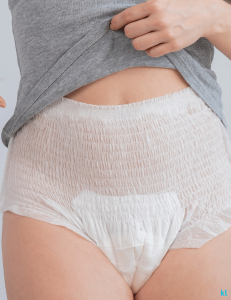
- Specialized Healing Products Recommended by Healthcare Professionals
Don’t overlook specialized recovery must-haves like lanolin cream for breastfeeding moms or ice packs designed for postpartum use. These physical recovery tools are often small but mighty, helping with swelling, soreness, and general discomfort.
Another must-have is a reliable pain reliever approved by your healthcare provider. Whether you’ve had a vaginal delivery or a C-section, staying on top of pain management is critical to feeling your best during the early stages of recovery.
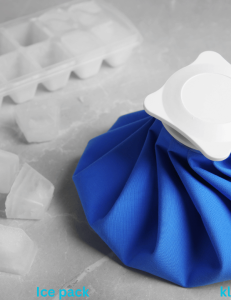
Breastfeeding and Feeding Must-Haves: Essentials for a Smooth Journey
Here’s a guide to breastfeeding must-haves that will help you ease into this special (and sometimes challenging) bonding experience.
- Nursing Bras and Comfortable Feeding Tops
First things first—invest in nursing bras and feeding-friendly tops. These are absolute breastfeeding must-haves because they make the process so much easier.
Look for bras with easy-to-use clips and soft, breathable fabric to keep you comfortable around the clock. I remember fumbling with regular bras in those early days—it was a disaster!
Feeding tops are equally important, especially when you’re out and about. They offer discreet nursing support, allowing you to focus on your baby rather than your wardrobe. Trust me, you’ll appreciate the convenience when hunger strikes mid-grocery run!
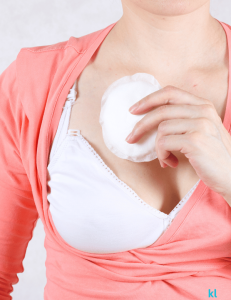
- Breast Pumps and Milk Storage Solutions
Even if you plan to nurse exclusively, having a breast pump, is a must-have baby gear checklist, and is a game-changer. It’s great for building up a milk stash, relieving engorgement, or simply giving yourself a little break while someone else handles a feeding. There are manual and electric pumps, so choose what works best for your routine.
Don’t forget milk storage solutions like freezer-safe bags or reusable containers. Labeling bags with the date is a simple but crucial step—I learned the hard way when I mixed up older milk with fresh!

- Nipple Care Products
Let’s talk about nipple care because, let’s be honest, breastfeeding can be rough on sensitive skin. A good nipple cream is a lifesaver for soothing soreness and preventing cracking.
Lanolin-based creams are popular, but there are also plant-based options if you prefer something more natural.
Nipple shields are another handy breastfeeding accessory, especially if you’re dealing with latch issues or discomfort. They’re not a long-term solution, but they can provide much-needed relief while you and your baby figure things out.
- Nursing Pillows and Support Accessories
A supportive nursing pillow is one of those breastfeeding must-haves you didn’t know you needed until you try it. It helps position your baby at the right height, reducing strain on your arms and back. For extra versatility, consider multi-use pregnancy pillows that can double as tummy-time supports later on.
Other breastfeeding accessories worth considering include burp cloths (you’ll need lots!) and a small, portable breastfeeding cover if you’re looking for privacy while nursing in public.
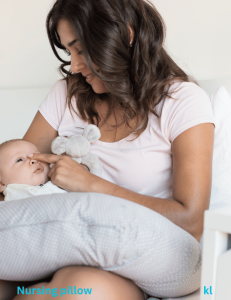
- Hydration and Nutrition Support for Nursing Mothers
Breastfeeding takes a lot out of you—literally! Staying hydrated is key to maintaining your milk supply and keeping your energy up. A large, refillable water bottle with a straw was my constant companion during nursing sessions.
Snack packs with healthy, nutrient-dense options like nuts, trail mix, or granola bars are also great for keeping you fueled. Lactation cookies or teas designed to boost milk production are worth trying but don’t stress too much if they’re not your thing.
Balanced meals and consistent hydration are the foundation of breastfeeding comfort. Be kind to yourself, ask for help when you need it, and focus on enjoying those precious moments with your little one. You’ve got this!
Comfort and Self-Care Items: Prioritizing You During the Fourth Trimester
The postpartum period, also known as the “fourth trimester,” is a mix of emotions, sleepless nights, and adjusting to life with a new baby. Between feeding schedules and baby snuggles, it’s easy to forget about yourself.
But taking care of yourself isn’t a luxury—it’s essential. Let’s talk about some simple comfort items and postpartum essentials that can help make this time easier for you.
- Comfortable Loungewear and Sleep Solutions
Comfortable loungewear is an absolute must-have for postpartum moms. Think soft, loose-fitting pajamas or nursing-friendly tops that make those middle-of-the-night feeds easier.
As for sleep, let’s be real—it won’t be uninterrupted. But creating a cozy sleep setup with a supportive pillow (hello, multi-use pregnancy pillows!) and blackout curtains can help you maximize whatever rest you can get.

Bonus: an eye mask and earplugs can be lifesavers if you’re sharing the room with a snoring partner or a noisy monitor.
- Stress-Relief and Relaxation Tools
Finding ways to unwind during this intense period is essential. Stress-relief tools like lavender-scented candles, postpartum essential oil in diffusers, or even a quick aromatherapy roll-on can help turn chaotic moments into mini-retreats.
A warm soak in a sitz bath can be both healing and relaxing for moms recovering from vaginal deliveries. Add some Epsom salts or postpartum healing products to take it to the next level.
Pro tip: Schedule “me time” even if it’s just 10 minutes—whether it’s meditating, reading, or indulging in your favorite snack while the baby naps.

- Personal Care Items for Physical and Mental Well-Being
For mental well-being, consider small rituals like skincare routines—even if it’s just a quick face wash and moisturizer. A touch of normalcy can work wonders for your mood.
Keeping a water bottle handy ensures you stay hydrated, which is crucial for both physical recovery and breastfeeding.
- Practical Items to Make Recovery More Comfortable
Keep a postpartum recovery basket with all your essentials—snacks, nipple cream, pain relievers, and a good book—within arm’s reach.
One thing I didn’t expect was how much I’d appreciate a comfortable chair or recliner for feeding and cuddling sessions. Pair it with a lumbar pillow for extra back support. These seemingly small fourth-trimester essentials can make your recovery feel a bit more manageable.
Practical Home Recovery Helpers: Easing the Postpartum Transition at Home
It’s all about finding the balance between self-care, baby care, and managing your home. Below are some postpartum lifestyle hacks to help make your days smoother and less stressful.
- Meal Preparation and Nutrition Support
One of the hardest parts of the first few weeks after birth is making sure you’re eating well. I was exhausted and running on fumes, and the last thing I wanted to do was cook. That’s when I realized—having a well-stocked postpartum nutrition resource kit was essential!
Freezer meals are a game-changer. Pre-cooking and freezing meals before your due date can save you tons of time.
If you can, have a friend or family member help you cook or help by bringing you meals during the first couple of weeks. Meal delivery services like HelloFresh or local options specializing in postpartum meals are fantastic resources to support your body’s recovery needs.
Don’t forget to include healthy snacks, like protein bars, smoothies, and fruit, that are easy to grab when you’re breastfeeding or just too tired to cook.

- House Help and Organization Tools
We all know a tidy house can help clear the mind—but that doesn’t mean you need to do it yourself. Whether it’s hiring a cleaning service or asking for help from a friend, home help postpartum is incredibly valuable.
Focus on recovery and bonding with your little one—let someone else handle the laundry and dishes.
To keep things manageable, I recommend organizing your home into zones: a nursing area with your supplies, a place for diaper changes, and a spot for baby clothes, blankets, and essentials.
Use storage bins, baskets, and labels to keep everything in its place. Simple tools like a baby-friendly laundry basket with handles (so you don’t have to bend down) can make a big difference.
- Sleep Support and Baby Care Accessories
Sleep—or lack thereof—will be your biggest challenge in the first few months. A postpartum recovery kit should include some items that help you maximize rest.
Consider adding to your baby care checklist like a swaddle blanket or a bassinet with gentle rocking to help your baby sleep better and allow you to catch some much-needed sleep.
If you’re breastfeeding, a night light can help you see during those middle-of-the-night feeds without waking up your partner. These little things add up to make your nights more comfortable

- Time-Saving and Stress-Reducing Products
Let’s face it—there’s always something to do. A new parent’s to-do list is never-ending, and sometimes, it feels impossible to keep up. I’ve found that time-saving postpartum recovery tools like robotic vacuum cleaners or a dishwasher that you can load without bending down are absolute lifesavers.
For those moments when you need a break or some self-care, things like a white noise machine can help soothe both you and your baby, creating a calm atmosphere.
Even investing in a diaper bag with a built-in changing mat and pockets for all the baby essentials can save you from running around trying to find stuff when you’re out and about.
Prioritize your comfort, simplify your day-to-day, and allow yourself the space to rest and recover. After all, you deserve it!
Physical Recovery and Body Care: Essential Tools for Postpartum Healing
After giving birth, the physical recovery process can be challenging. Your body has just gone through an intense, life-changing experience, and now it’s time to heal.
Thankfully, there are maternal care items and maternal health products that can ease the discomfort and speed up your recovery.
- Postpartum Compression Garments
Postpartum compression garments are one of the best maternal recovery tools out there. If you had a C-section or vaginal birth, these garments can provide much-needed support as your body heals.
Compression helps reduce swelling, encourages blood flow, and supports your abdominal muscles as they start to regain strength. I remember feeling so much more secure after wearing one of these garments in the early days.
It wasn’t uncomfortable at all, and the support it provided made standing up, sitting down, and walking much easier. It also helped my core muscles feel more “together” after my baby was born.
Be sure to consult with your healthcare provider on when to start wearing these garments, as it can vary based on your delivery and personal healing process
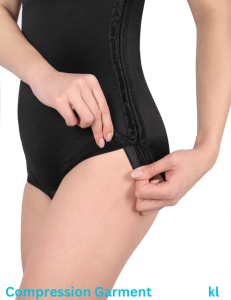
- Specialized Recovery Undergarments
For new moms, especially those recovering from a C-section, specialized recovery undergarments can be a game changer. I was given a pair of high-waisted, breathable recovery underwear after my delivery, and they were a godsend.
They helped hold everything in place while being gentle on sensitive areas, especially around the incision site. And let’s not forget about the convenience factor: they often have a soft, cotton lining that feels much more comfortable than the regular underwear we’re used to wearing.
Plus, many of these recovery undergarments are designed to accommodate sanitary pads or ice packs for added comfort.
- Body Care Products for Healing and Comfort
Your skin, muscles, and tissues need a lot of TLC(Tender, Loving, Care) after giving birth. Postpartum body care products like soothing oils, balms, and healing sprays can support your recovery while providing comfort.
Products with ingredients like witch hazel, aloe vera, and calendula are wonderful for reducing inflammation and soothing irritation, especially in the vaginal area after childbirth.
For my own recovery, I swear by a good perineal spray to keep things feeling cool and clean. After a vaginal delivery, this spray really helped reduce swelling and discomfort.
I also made sure to hydrate and moisturize my skin regularly, as postpartum hormonal changes can make your skin feel dry and stretched.
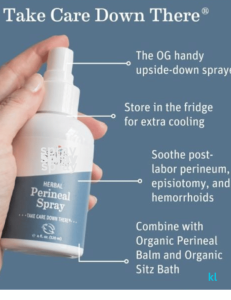
- Nutrition and Supplement Recommendations
As with any healing process, maternal nutrition plays a pivotal role. Your body is going through significant recovery, and proper nutrition can speed things up. Focus on a balanced diet rich in vitamins and minerals—especially iron, calcium, and protein.
Recovery nutrition is also crucial for replenishing your energy after the exhausting process of childbirth. I found that adding postpartum-specific supplements helped me feel more balanced.
Look for vitamins and do not forget that you can still take your prenatal vitamins for support during postpartum healing, like those containing folic acid, vitamin D, and omega-3s. If you’re breastfeeding, talk to your doctor about supplements that might help with milk production and overall wellness.
- Exercise and Gentle Recovery Tools
Once your healthcare provider clears you for exercise, incorporating gentle recovery tools into your routine is a great way to regain strength and mobility. Focus on low-impact activities like walking, pelvic floor exercises, or postpartum yoga. These gentle movements can help your body feel more like itself again.
I started with simple stretches and deep breathing exercises that helped alleviate some of the tension I was feeling. Gradually, I worked up to more rigorous exercises, but never too fast or too hard. It’s key to listen to your body and give yourself grace—postpartum recovery takes time.

- Maternal Wellness Kit
When it comes to holistic healing, a maternal wellness kit can provide everything you need to support both your body and mind. This kit should include essentials like prenatal vitamins for postpartum, a journal for mental clarity, soothing teas, and relaxation tools like a massager or heating pad.
A wellness kit allows you to approach recovery in a holistic way, focusing not just on the body but on mental and emotional well-being as well.
Emotional and Mental Health Support: Essential Tools for Postpartum Wellness
Navigating the whirlwind of motherhood can take a toll, and making emotional well-being a priority is key. Here are some resources and strategies I’ve personally found helpful for maintaining mental health and emotional stability during the postpartum journey.
- Mental Health Support Tools
Mental health postpartum is just as crucial as physical recovery. In fact, sometimes, it’s harder to recognize and deal with mental health challenges because they’re less visible.
I’ll be honest, postpartum depression and anxiety are real—and they are more common than most people talk about. Having the right mental health support tools can make a significant difference.
Some tools that helped me were mindfulness exercises, guided meditation apps, and journaling. Apps like Headspace or Calm were lifesavers for getting in some much-needed moments of stillness.
Meditation isn’t a quick fix, but I found it helped me stay present, release tension, and handle feelings of overwhelm with more calm. Don’t forget, that emotional well-being isn’t just about avoiding bad feelings; it’s about learning to cope with the hard ones in a healthy way.

- Communication and Support Network Strategies
The importance of a mom support network cannot be overstated. Building your network of friends, family, and fellow moms is invaluable for your mental health postpartum.
I leaned on close friends who had gone through similar experiences, and they made all the difference in providing emotional comfort and practical advice.
Talking to someone who just “gets it” can help you feel less alone. Sometimes, all you need is a phone call with a friend or a family member to release the tension and feel seen.
Don’t be afraid to communicate your needs and seek help when you need it. Whether it’s asking your partner for more support or reaching out to a friend for a chat, setting clear expectations helps you feel more connected.
- Self-Care and Emotional Wellness Items
Postpartum self-care isn’t just about bubble baths and face masks (though, I’ll admit, those do help!). It’s about nurturing your emotional health, too. I made sure to carve out time for myself—even if it was just 10 minutes in the bathroom with some calming music.
Having emotional wellness items like scented candles, calming teas, or even a journal to reflect on my day helped me reconnect with myself.
For me, using an aromatherapy diffuser with essential oils became a regular practice. Lavender and chamomile oils are particularly soothing for moments when I felt overwhelmed.
It’s these small acts of self-care that added up and helped me feel more in control of my emotional well-being. Remember: you deserve this kind of care, and it’s not selfish to take time for yourself.

- Professional Support and Counseling Resources
Sometimes, emotional well-being requires more than just self-care—professional support might be necessary. If you’re struggling with postpartum mental health challenges like depression or anxiety, reaching out for professional counseling or therapy can be a game-changer.
I didn’t hesitate to speak with a therapist when I realized I wasn’t bouncing back emotionally as quickly as I’d hoped.
Having a postpartum mental health professional in my corner helped me manage emotions I couldn’t handle on my own. Therapists who specialize in postpartum care can guide you through the rollercoaster of emotions, offer coping strategies, and provide a safe space to talk about anything you might be feeling.
If therapy isn’t an option for you, look into local mom support groups, many of which offer group therapy or peer support.
Taking care of your mental health postpartum is a vital part of your healing journey. Be kind to yourself—this is a big transition, and it’s okay to ask for support whenever you need it.
Preparing for postpartum recovery doesn’t have to be overwhelming. With these 31 Postpartum Must-Haves: Ultimate Guide for All Deliveries, you’ll feel more prepared and empowered for this beautiful, yet challenging, phase of life.
Every mom deserves comfort and care during postpartum, so start gathering your essentials today and focus on what truly matters—bonding with your baby. You’ve got this, mama!


